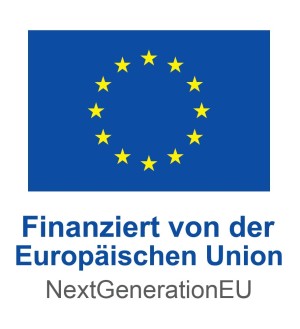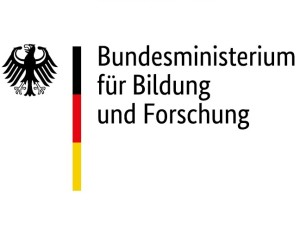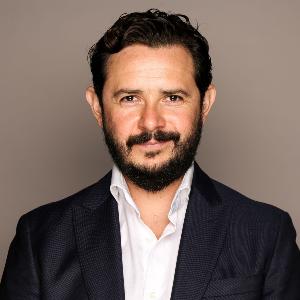KODAQS: Data Quality Driven Research for Social Sciences
The Competence Center for Data Quality in the Social Sciences (KODAQS) is a collaboration between the Social Data Science and AI Lab (SODA) at Ludwig Maximilian University, the School of Social Sciences at the University of Mannheim, and GESIS - Leibniz Institute for the Social Sciences.
The project aims to foster a new culture for teaching data quality skills in the social sciences. KODAQS promotes quality-assured handling of data by providing researchers with innovative tools and comprehensive training to determine and assess the quality of data. It is focused on digital behavioural data, survey data, and linked data (e.g. surveys linked with geodata).
The planned training components of KODAQS include (1) a Data Quality Academy, configured under a digital and hybrid learning approach; (2) a Data Quality Toolbox, which offers methodological resources to estimate and develop data quality indicators along with supervised learning and consulting resources; (3) DataFests, a series of “hackathons” aiming to implement hands-on training to apply the learnt theoretical and methodological skills, and (4) guest research stays at KODAQS partner institutions. KODAQS project leads are Prof. Dr. Frauke Kreuter (LMU), Prof. Dr. Florian Keusch (University of Mannheim) and Prof. Dr. Beatrice Rammstedt (GESIS). KODAQS is funded by the BMBF NextGenerationEU (until 2026).
KODAQS Data Quality Academy
Addressing the need for a stronger focus on data quality
The replication crisis in various scientific disciplines shows how necessary a valid and
transparent assessment of the quality of the data to be used is. Only data with sufficient
quality as well as appropriate instruments and knowledge for their evaluation allow
reliable interpretations and conclusions. With the growing number of different data
sources - including alternatives to traditional survey data -the challenges regarding valid
and reliable measurements are increasing, leading to an urgent need to support
researchers in checking and documenting the quality of the data they research. With our
KODAQS Academy, we want to meet this need and close an important gap in the
scientific landscape. We want to support researchers in assessing and analysing the
quality of social science data and thus contribute to valid research results
Aims of KODAQS Academy
Our Academy aims to create an innovative and unique learning opportunity for the social
sciences under an online hybrid and blended learning structured training. This offer is
aimed at researchers who want to expand their data science skills with a focus on data
quality and the quality-oriented use of social science data. As a learning opportunity, the
Academy provides participants with the necessary theoretical and, above all, practical
data science skills to assess the quality of different types of data and to use this data in a
quality-oriented manner to conduct reliable analysis.
The KODAQS Academy comprises three main components of training:
- Certificate Program: a six-month, online blended learning structured training consisting of synchronous and asynchronous sessions plus networking events with KODAQS lecturers and partner institutions (see the call for applications below!).
- Individual Training: a self-paced training approach where participants can use the asynchronous learning resources of the Certificate Programme in a self-directed and flexible manner. An online support forum is available to support the learning process.
- Train-the-Trainer: open educational resources to teach methods for adequate knowledge transfer of data quality into university teaching according to the train-the-trainer principle.
Learn more about KODAQS Academy and its curriculum
Call for applications KODAQS Academy Data Quality Certificate Program 2024-2025
Apply to our Certificate Program!
About the Program
Our Program is a six-month online blended learning structured training, comprising approximately 120 hours of self-study and self-assessment learning. It aims to enable comprehensive skills to identify, foresee, diagnose, fix, and frame potential problems related to data management. The program relies on a highly practical component, which includes newly developed online courses for self-learning, regular online live events for interaction with lecturers and peers, as well as networking events with relevant data-producing institutions to learn about the actual practice of creating and working with high-quality data.
Join us and take the first step towards acquiring the best skills for data quality management in the social sciences!
- Timeframe: 20 November, 2024 – 06 June, 2025
- Applications must be submitted by September 15th, 2024.
- Please note that the course language is English
- More information on how to apply here!
Eligibility for the Program
Our program is designed to equip doctoral students and early-career postdoctoral researchers from different disciplinary backgrounds using social science data with innovative tools and comprehensive training to promote quality-assured data handling.
Technical and academic skills pre-requisites:
- You are currently enrolled as a doctoral student or recently started a postdoctoral research position.
- Basic understanding of statistics and data analysis.
- Prior experience in conducting research on or familiarity with survey methodology.
- Knowledge of statistical software (e.g. R, Python, or Stata).
Modules and Curriculum
The Certificate Program’s curriculum is clustered under six consecutive modules:
- Terms, concepts & frameworks of data quality.
- Indicators & metrics of data quality.
- Remedies & corrections for identified quality problems.
- Tools & workflows for procurement, linking, processing and evaluation of data.
- Academy Safari (one day visit to a data-producing institution in Germany).
- DataFest (taking place at the Ludwig Maximilian University-Munich).
A detailed description of courses and weekly schedule is linked here.
KODAQS Academy Learning Bites:
The KODAQS certificate program also provides access to our Academy Learning Bites, which are additional optional online learning resources for self-study. Compared to the core courses, these are shorter, structured learning contents focused on more specific topics and skills.
Data Focal Points (Eligible Tracks)
The KODAQS Academy’s Data Focal Points play a relevant role in the configuration of the Certificate Program, as the curriculum is designed under a logic of “tracks” to deepen the training on the management of a desired type of data. The data focal points of the KODAQS Academy consist of the following types of data:
- Survey data: Data collected using quantitative interviews and corresponding standardized instruments, such as cross-sectional surveys and longitudinal surveys.
- Digital behavioral data: Data left behind as traces in the use of digital systems, such as text, image, and video data in social media, networks from online, interactions, browsing history, or smartphone usage data.
- Linked survey data with digital behavioral data or administrative data and geodata: Survey data that has been linked at the aggregate or individual level with digital traces or data from official statistics or geospatial data.
Teaching Methodology
Our online program combines various learning formats and components to provide you an enriching opportunity. Courses are organized in the form of blended learning, therefore, combining synchronous and asynchronous teaching formats. Participants are expected to invest 120 hours throughout the 6 months of the program’s duration. The weekly workload is designed to be 3-4 hours (depending on the learning pace of every participant) which is expected to distribute as follows:
- 1-hour Weekly Touchpoint (live seminar style sessions online).
- Review of online didactical material (videos, literature, coding materials, etc).
- Self-Assessment checks (brief self-assessment checks after reviewing the online didactical material)
- In total, a 4-week course requires approx. 12-16 hrs. of work
- Finally, please note that every course has a final assignment that must be consider for the time invested.
Tuition Fees:
The Certificate Program itself has no fees. Please note that the attendance of a series of onsite events happening throughout Germany are part of the Program's curriculum requirements (see curriculum contents).
Certification
Upon successful completion of the course, you will be awarded a Social Science Data Quality Steward Certificate of Attendance. In order to earn the Certificate, you are required to complete the six Academy Modules as well as to attend the on-site events (Academy Kick-off, Academy Safari and Datafest).
Application:
- Please submit your application through our online registration in our call for applications website
- Application Deadline: applications must be submitted by September 15, 2024.
- Notification of acceptance to the program will be communicated by the last week of September 2024 (at the latest)
Relevant dates to consider:
- The Certificate Program will run from 21.11.24 to 06.06.25.
- Academy Kick-off: November 21, 2024 at GESIS-Mannheim (on-site event).
- KODAQS Datafest: April 11-13, 2025 at the Ludwig Maximilian University-Munich (on-site event).
- Academy Safari: Spring 2025 (tbd, occurs within Germany).
Contact
Contact and questions: We look forward to receiving your application, if you have any further enquiries, please contact Dr. Luis Mejia (luis.mejia.lopez@uni-mannheim.de)
KODAQS News:
- KODAQS Certificate Program 2024-2025: Call for applications (deadline: Sept 15, 2024)
- Press release (December, 2023): [German I English]
- Call for Guest Researchers (deadline: March 31, 2024)
- For frequent updates, follow KODAQS on LinkedIn
This project is funded by:



